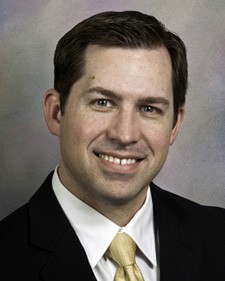
INTRODUCTION
I am a Professor of Mechanical Engineering with a specialty in impact and injury biomechanics. Prior to joining Cal State LA, I spent nearly nine years working for a forensic engineering company and four years working for General Motors in Safety and Crashworthiness. I am the co-director of the Biomechanical Engineering Research Laboratory and teach various mechanical and biomechanical engineering courses. I am the co-developer and past director of the Biomedical Engineering minor program.
RESEARCH INTERESTS
My research interests are in the field of injury biomechanics, safety system development and forensic science. More details may be found on the website: /aibl/
TEACHING
ME 2010 Statics
ME 2050 Strength of Materials I
ME 2801 Introduction to Biomedical Engineering
ME 3040 Statistical Analysis of Experimental Data for Engineers (formerly Experimental Methods)
ME 3200 Dynamics
ME 4500 Biomechanics of Human Movement
ME 4520 Impact Biomechanics
ME 4590 Biomechanical Engineering Design
ME 5540 Forensic Engineering (graduate special topics course)
EDUCATION
PhD, Biomedical Engineering, Wayne State University
Dissertation: "Biomechanics of Blunt Ballistic Temporo-Parietal Head Impact"
MS, Biomedical Engineering, Wayne State University
Track: Automotive-related Impact Biomechanics
BS, Engineering Mechanics, Option: Biomedical Engineering (Biomechanics), Michigan State University
Senior Thesis: "An In-Vitro Biomechanical Analysis on the Effect of Decompression and Stabilization of the Canine Cervical Spine"
LICENSURE AND CERTIFICATION
PE, Professional (Mechanical) Engineer, State of California #M39346
DFE, Board Certified Forensic Engineer, National Association of Forensic Engineers (NAFE)
EXPERIENCE
2021 - Pres Professor, Department of Mechanical Engineering, California State University Los Angeles
2023 - 2025 Associate Chair, Department of Mechanical Engineering, California State University Los Angeles
2022 - 2023 Interim Chair, Department of Mechanical Engineering, California State University Los Angeles
2016 - 2021 Associate Professor, Department of Mechanical Engineering, California State University Los Angeles
2011 - 2016 Assistant Professor, Department of Mechanical Engineering, California State University Los Angeles
2002 - 2011 Forensic Biomechanical Engineer, Vector Scientific, Inc.
1998 - 2002 Crashworthiness and Occupant Protection Engineer, General Motors Corporation (Flint and Warren, MI).
1996 - 1998 Joints and Fasteners Engineering Intern (periodic), General Motors Corporation (Flint, MI).
Fall 2025 Teaching Schedule
ME 2050 Strength of Materials I T/R 1:40 p.m. - 2:55 p.m.
ME 3040 Statistical Analysis of Experimental Data for Engineers T/R 10:50 a.m. - 12:05 p.m.
ME 3200 Dynamics T/R 12:15 p.m. - 1:30 p.m.
ME 4500 Biomechanics of Human Movement T/R 4:30 p.m. - 5:45 p.m.
Spring 2026 Teaching Schedule
ME 2050 Strength of Materials I T/R 12:15 p.m. - 1:30 p.m.
ME 3200 Dynamics T/R 9:25 a.m. - 10:40 a.m., 10:50 a.m. - 12:05 p.m.
ME 4520 Impact Biomechanics T/R 1:40 p.m. - 2:55 p.m.
Active Research Projects
1. HSI Implementation and Evaluation Project: Commitment to Learning Instilled by Mastery-based Undergraduate Program (NSF funded)
2. Variation in automotive seat stiffness properties. (CSULA funded)
3. Lumbar spine loads in rear-end collisions: Effects of crash pulse, seat properties, and occupant posture. (CSULA funded)